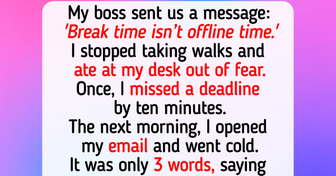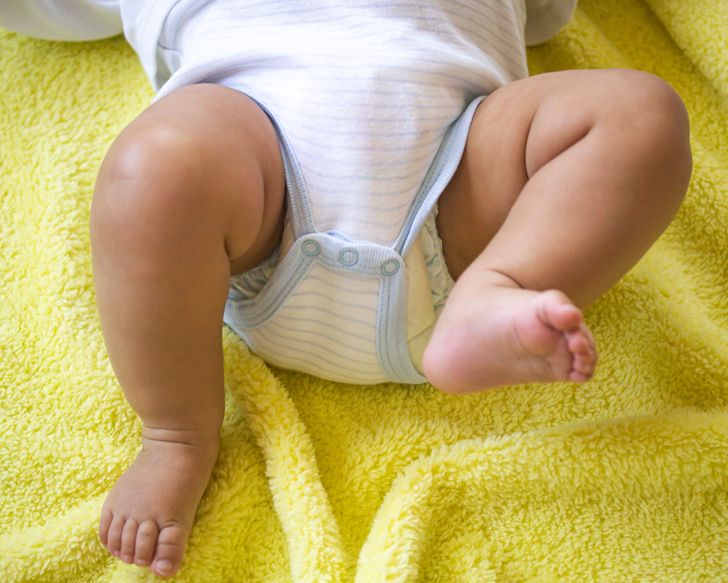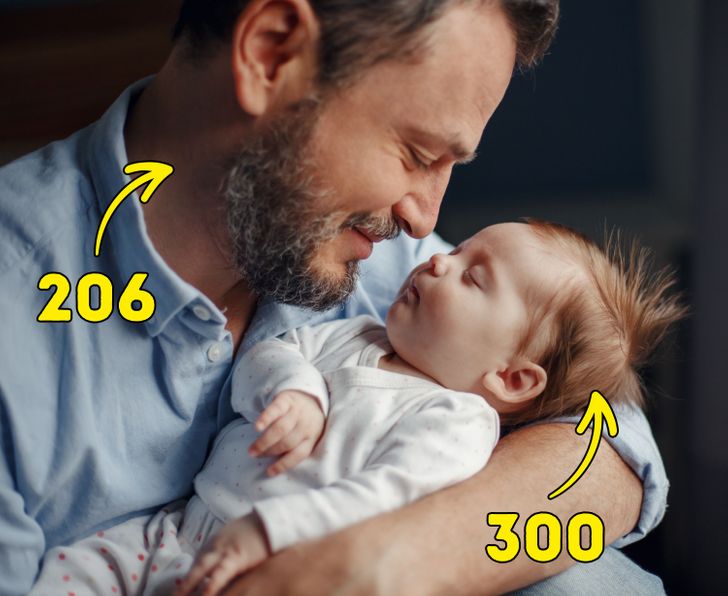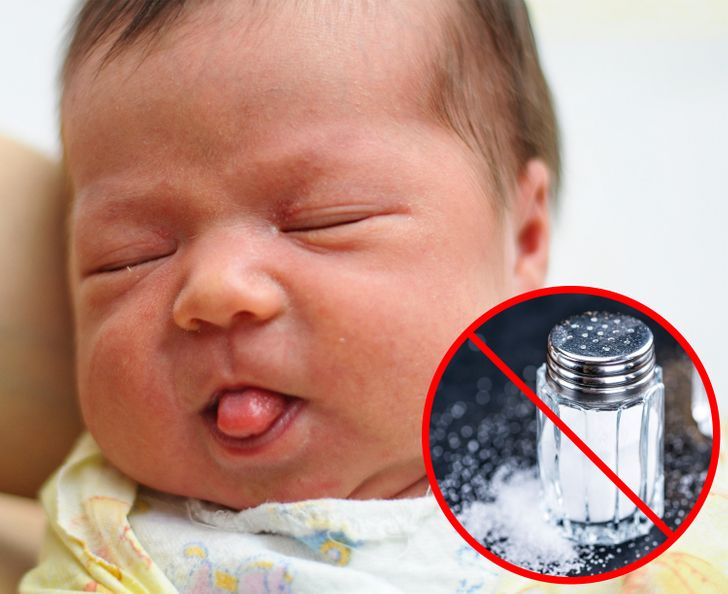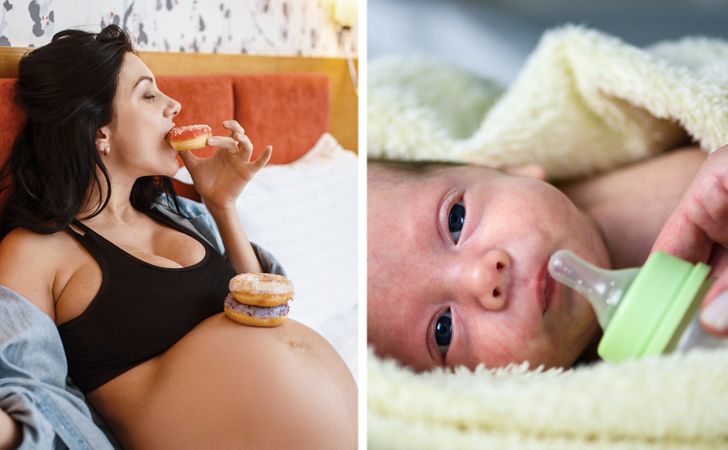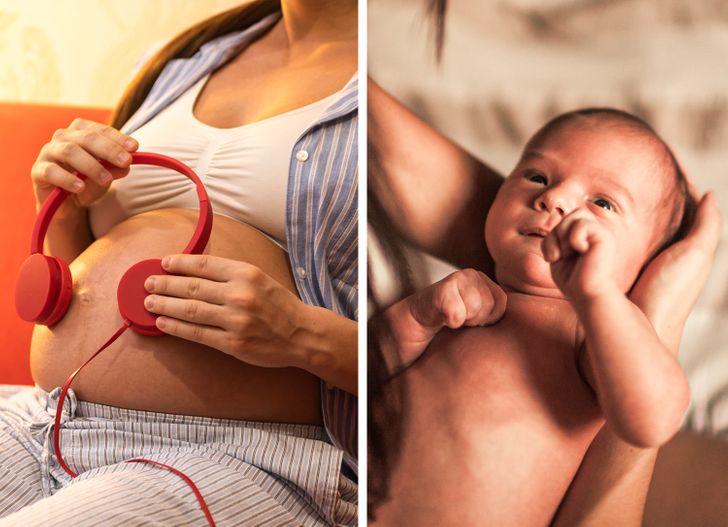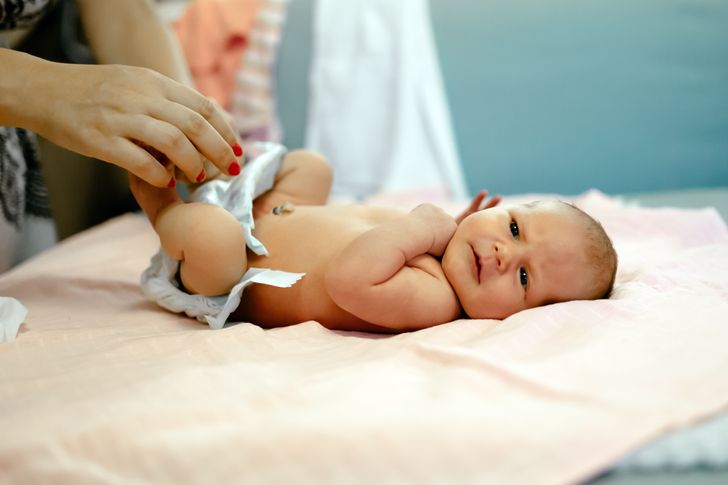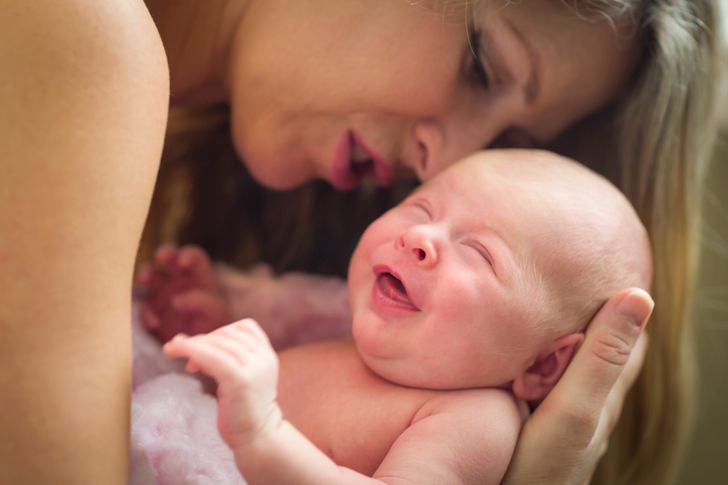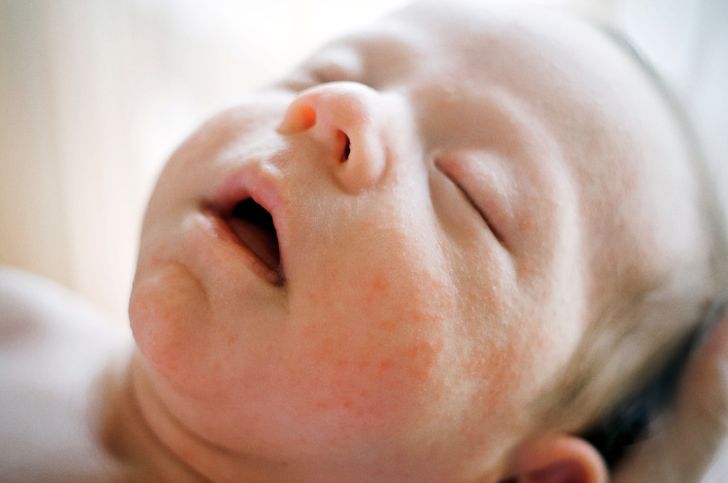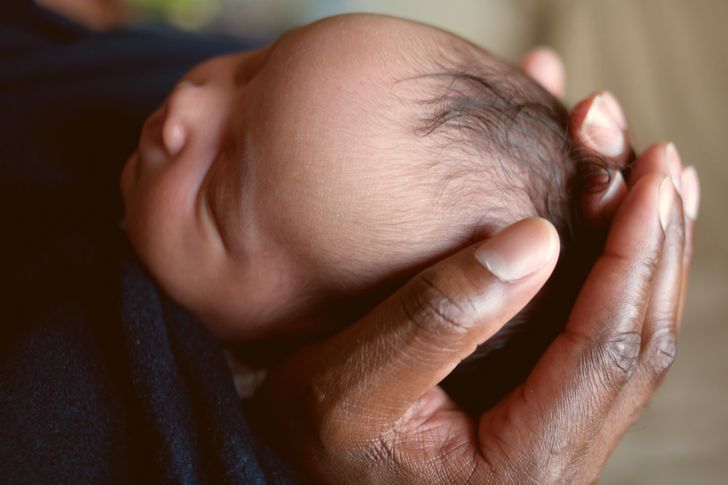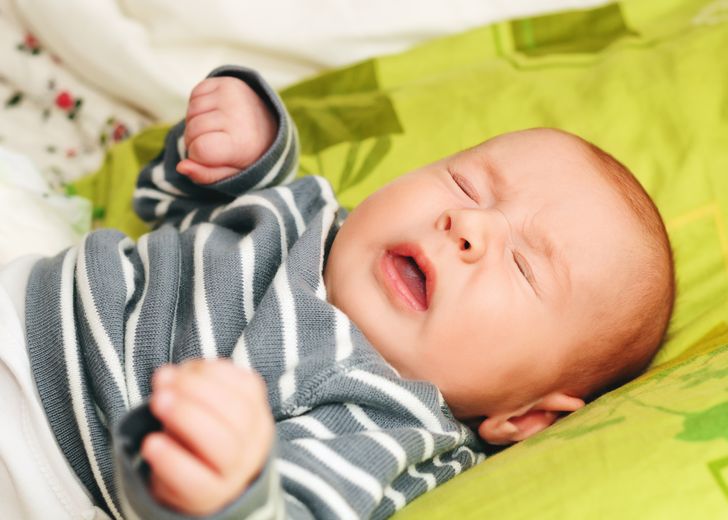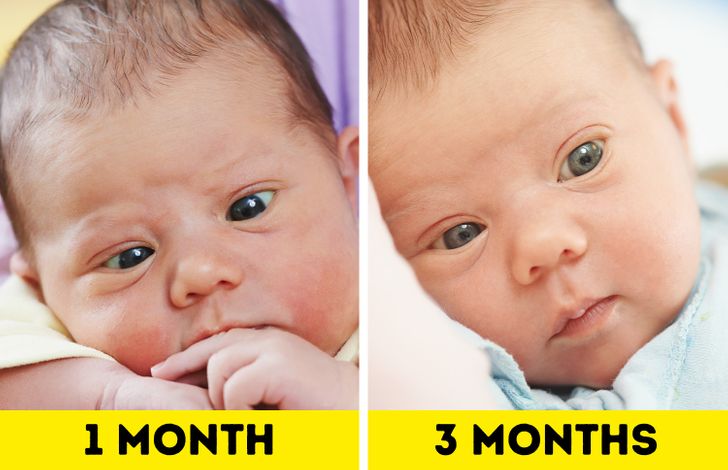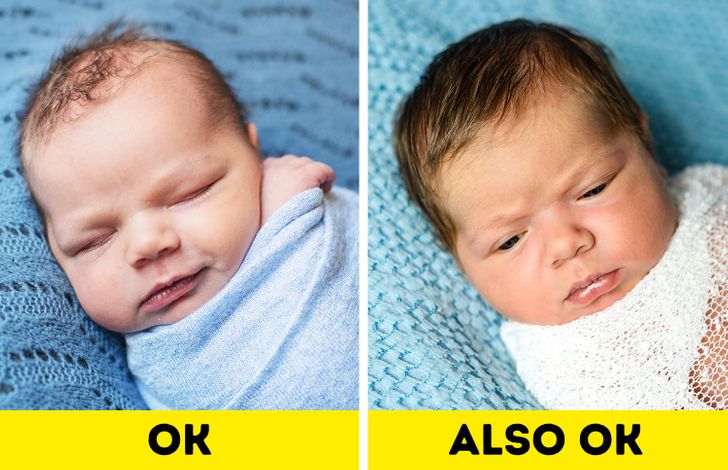i like babies
15 Curious Things About Newborn Babies That You Probably Didn’t Know
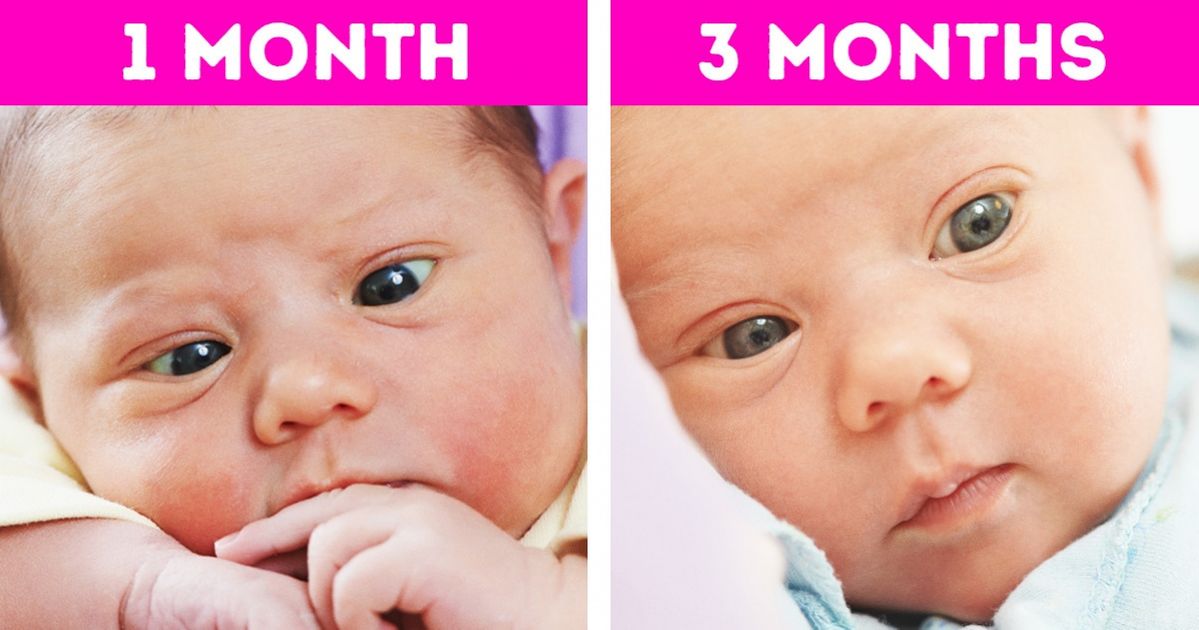
Babies that are fresh out of their mothers’ wombs can bewilder us with strange things, such as producing poop in many different colors, including yellow and green. And believe it or not, their very first poop doesn’t even stink. It’s only after you start feeding them that they start having gut bacteria that gives the excrement this familiar stench. This is only one of the many astonishing things about newborn babies.
We at Bright Side are looking into some of the most surprising things about newborn babies that are actually very common.
1. They don’t have bony kneecaps.
2. They have way more bones than we do.
In fact, babies are born with around 100 bones more than adults have in their bodies! They have about 300 bones at birth, and these will, in time, fuse together to form the 206 bones that adults have. Some of their bones are made of cartilage that will be replaced by bones with the help of calcium as they grow. The whole process will be complete by the time they turn 25, after which, bones can no longer grow.
3. They may cry a lot, but they have no tears.
Babies’ tear ducts are still developing after birth, so it’s usually not a big deal if they don’t have any when they cry. Most babies begin to shed tears around 2 weeks of age, but some may take up to 2 months. Even though they may not have tears yet, newborns usually spend 2 to 3 hours a day crying. Sometimes they do it for no reason, but other times, they’re actually trying to communicate with you.
4. They probably can’t taste salt.
Newborns don’t react to the taste of salt as they do to other tastes, like sweet or bitter. They either can’t detect salt or just don’t care about the taste. But babies begin to register the taste of salt sometime between 2 months and 6 months of age.
5. They have taste buds in more places than we do.
Although babies have about the same number of taste sensors as kids and younger adults, they cover more areas. Babies’ taste buds can be found not only on their tongue but also on their tonsils and the back of the throat.
6. And they remember what they tasted in the womb.
In the womb, a baby is surrounded by amniotic fluid, and they gulp some of it daily. The fluid is flavored by the food and drinks that the mother consumes. At 21 weeks inside the mother’s womb, the growing baby can taste what their mother eats and drinks. After they’re born, they are more likely to prefer what their mother ate during pregnancy.
7. They also remember sounds they heard while in the uterus.
8. They can have a mini period.
Baby girls may experience a little bleeding at age 2-3 days but usually, it’s no cause for worry. The reason for this “mini period” is a withdrawal of hormones they were exposed to in the womb. They won’t have a period again until they reach puberty.
9. They can also have mini breasts.
Newborn babies (both boys and girls) can have swollen, enlarged breasts and/or lumps around the chest area. Most of the time, it’s only because of the exposure to maternal hormones in the womb. The same hormones that cause the mother’s breasts to swell can do the same to the baby’s breasts.
10. Some can even produce milk.
Despite being coined “witch’s milk,” this is not a supernatural phenomenon and is perfectly normal. What happens is that the baby gets hormones from their mother through the placenta while they’re in the womb. And the process continues once they’re born if they’re breastfed. They usually stop producing milk by the age of 2 months.
11. They can get pimples.
Again, the hormones are at work here, but unlike teenagers, the hormones didn’t come from them. The remaining hormones that the baby gets from the mother stimulate their oil glands to sprout acne on their skin. Since the pores in a baby’s skin are not yet fully developed, they become easy targets for dirt to creep into.
12. Some babies can have oddly-shaped heads.
The reason for this is that sometimes a baby’s head is molded to look uneven while passing through the birth canal. In other cases, their head shape changes after birth because of the pressure on the back of the head when the baby lies on their back. At the top of their head, there are 2 soft spots where the skull bones haven’t grown together yet, which is why they are pretty malleable.
13. They may sneeze a lot.
Newborns sneeze a lot because they have to clear their noses more often than adults do. They have smaller nasal passages, so they can get clogged more easily. By sneezing, they get rid of things such as breast milk, mucus, smoke, and even dust in the air. They’re also still breathing through their mouths, so that can contribute to sneezing as well.
14. They may have crossed eyes.
Some babies are born with extra folds of skin in the inner corners of their eyes or have a wide-bridged nose, which can make them look cross-eyed. But usually, it’s nothing to be alarmed about because they will grow into their nose, or their folds will disappear. Their eyes may not even move perfectly in tandem either, but by the time they reach 3 months old, their eyes should be able to move in unison.
15. They may even sleep with their eyes open.
Although it may sound like something straight out of a horror movie, it’s actually nothing to be scared of. It’s more common than you might think, and if you sleep with your eyes open, chances are your baby might too. Also, babies have longer rapid eye movement (REM) sleep than adults. This, combined with their still-developing nervous system, can lead to their eyes popping open while they’re asleep.
What other things do you find weird about newborns that are actually totally normal? What else do you wish you knew about before having a baby?
Bright Side has its own podcasts now. Take cool articles with you and listen to new stories whenever and wherever you want.
Comments
My girl is nearly 4 months now. id read up on all these b4 hand. Some are odd aren't they. But there's still sooooo much you won't know unless you've been there.
Related Reads
12 Life Moments Where Quiet Kindness Played the Main Role

I Refused to Turn Our Romantic Trip Into a Family Vacation and Faced the Consequence

15 Stories That Prove Some Memories Are Impossible to Delete
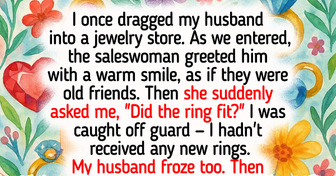
I Refuse to Give My Retirement Savings to My Adult Son—I’m Not Responsible for His Failures

I Refused to Be Treated Like a Maid in My Own Home—So I Changed the Rules

I Lost a $120K Job Over a Ridiculous Interview Test

10 Moments That Show Kindness Doing the Heavy Lifting
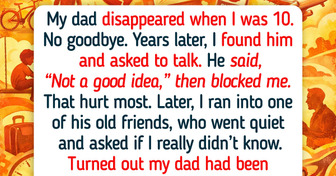
Our “Romantic” Vacation Was Hijacked by My Wife’s Family—And It Forced Us to Reevaluate Our Relationship

I Refuse to Let My Neighbors Ruin My Sleep—So I Got Even
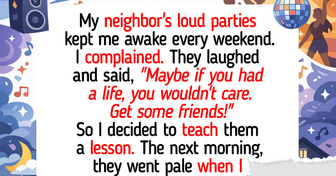
14 Dates That Started Like Movies but Ended Like Sitcoms

My Dad Refused to Come to My Wedding, but I Still Asked for the Gift

10 Bosses Whose Unrealistic Demands Led to a Disaster
